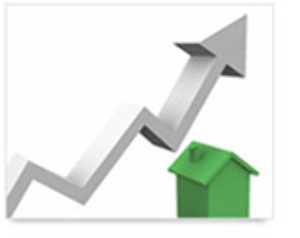
by Miriam Bell

In the bank’s latest Property Focus report, chief economist Sharon Zollner and senior economist Liz Kendall say that the housing market has rebounded strongly recently, with prices up 6% in the second half of 2019.
Not only has it rebounded – despite house prices already being “eye-wateringly high relative to incomes”, but the pick-up has been stronger than either they or the Reserve Bank had expected.
Zollner and Kendall say that as the housing market has lifted in response to factors including record low interest rates and the ongoing supply shortage, so too surveyed house price expectations have increased and that ups the incentive to “get in quick”.
“The recent lift in house price expectations highlights the risk that the housing market continues to gather momentum. At face value, these measures point to house price inflation in the realm of 10% year-on-year.”
Based on their assessment of the typical persistence in the housing market, the degree of existing tightness, credit developments and the ease of financial conditions, they have now upgraded their previous house price forecast of 5-6% this year.
“We expect continued robust house price inflation through the first half of 2020 and we expect it to reach 8% in mid-2020, before moderating. This is above the Reserve Bank’s November MPS forecast for house price inflation to peak at 5.7%.”
While it is possible that house price inflation could be even stronger if current tight conditions persist, at this stage they think that a number of factors will keep the market in check.
Those factors are easing population growth; a diminished likelihood of further OCR cuts; the fact the boost from lower mortgage rates will eventually run its course; and affordability constraints.
Additionally, policy changes targeted at reducing investor demand are still playing out and may be exacerbated by election uncertainty.
Zollner and Kendall say that, on balance, risks around their house price forecast look skewed to the upside at present – but longer-term downside risks are important too as house prices can, and do, fall.
They add that if lending gets silly, the Reserve may step in with tighter macro-prudential policy.
“While we expect that LVR settings are in a holding pattern for now, a rapid increase in housing market strength combined with a risky speculative dynamic would not be left unchecked.”
ANZ is following in the footsteps of Westpac which has long been forecasting national growth of around 7% this year.
Westpac chief economist Dominick Stephens recently said the latest data suggests that 7% figure could be achieved by April 2020 at the latest, but possibly sooner. He’s also now picking 5% growth for Auckland.
Meanwhile, former BNZ chief economist Tony Alexander suggests there could be even greater growth in store for Auckland – given property listings are short despite the rising supply of new houses.
In his latest newsletter, he says construction capacity constraints could mean extra realisation of upward pressure on property prices continuing.
“Could Auckland prices this year repeat their average gain of 14% achieved from 2012-15? It’s looking more and more like they will.”
However, other commentators remain more cautious and are sticking to predictions of price growth at around the 5-6% level.
| « Highest sales in December for three years | Why house price growth will continue » |
Special Offers
No comments yet
Sign In to add your comment

© Copyright 1997-2026 Tarawera Publishing Ltd. All Rights Reserved